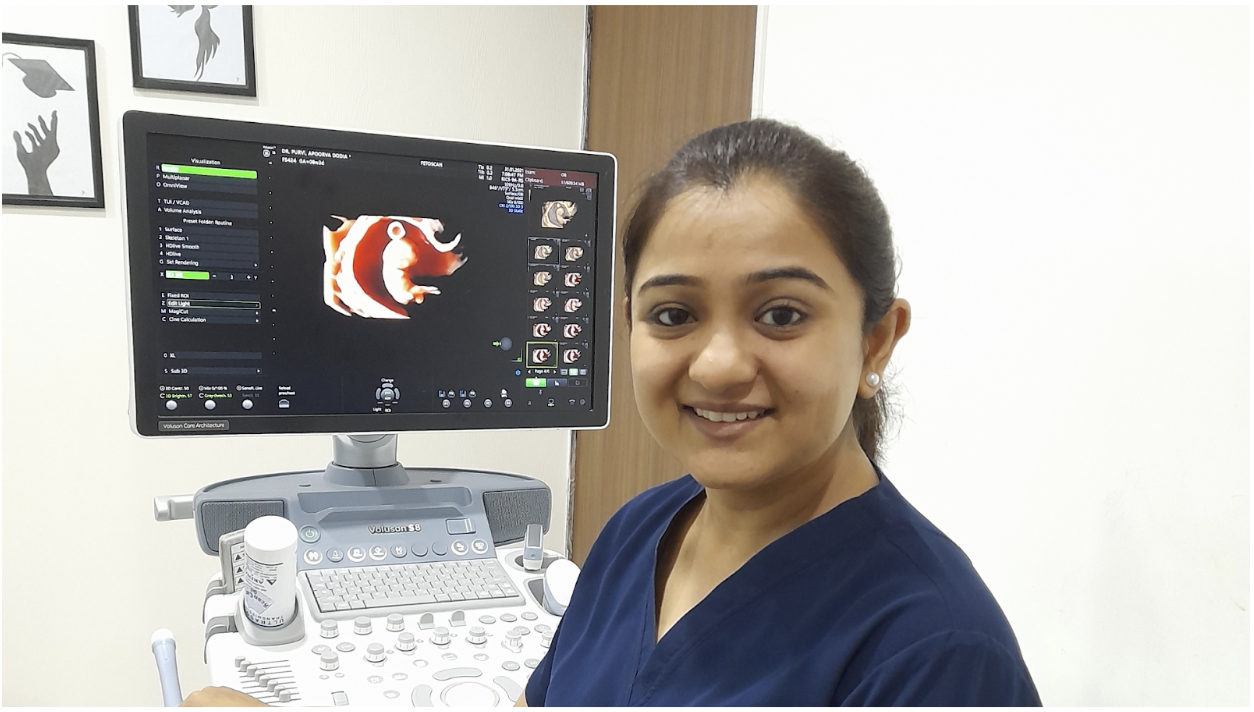Fetal medicine is a branch of medicine that specializes in complete fetal care, monitoring the baby and mother’s health during the pregnancy. Fetal medicine specialists are exclusively trained to focus on high-risk pregnancies and have extensive knowledge of medical, surgical, and genetic complications that may arise during pregnancy.
Read more https://fetoscan.in/2022/06/18/life-before-birth-what-is-fetal-medicine-2/
Services under Therapeutic interventions
- Multifetal pregnancy reduction
- Direct fetal blood transfusion
- Tumor embolization
- Shunts
Multifetal Pregnancy Reduction
Triplet and higher-order pregnancies carry a high risk of premature births, miscarriages, stillbirths, and neonatal deaths. Medical or surgical interventions have not shown much help in reducing the problems mentioned earlier. The current standard treatment to improve the outcome of such pregnancies is to ‘reduce’ the pregnancy to a twin pregnancy. However, reduction may not be acceptable to some parents.
Direct Fetal Blood Transfusion
Also known as Intrauterine transfusion (IUT), the procedure is a lifesaving intervention when the fetus is affected with severe anemia. The most common situation where direct fetal blood transfusion is done is when the mother is Rh-negative and the fetus is Rh-positive. In about 1-2% of such pregnancies, the mother will produce antibodies (attacking proteins) that will go into the blood of the fetus and cause the destruction of the red blood cells of the fetus. This makes the fetus anemic, and the anemia can be lethal for the fetus when it becomes severe. Correction of anemia through direct fetal transfusion is the treatment of choice.
Tumour Embolization
Chorioangiomas are benign tumors of the placenta that do not pose a significant threat to the pregnancy in the vast majority of cases. However, when they are relatively large (>5cm), they may affect the pregnancy in two ways: they act as bypass channels for blood circulation, causing excess workload on the fetal heart leading to heart failure; they act as a trap to for fetal red blood cells causing fetal anemia.
Shunts
When fluid collects inside the fetal thorax, it is referred to as pleural effusion or hydrothorax. This fluid collection may increase in quantity within the fetal chest, causing pressure on the heart and the main blood vessels, leading to heart failure and ultimately fetal death. In such situations, inserting a shunt tube that drains the fluid from within the chest to the outside of the fetus (i.e., into the amniotic sac) relieves the pressure and protects the baby from dying due to heart failure. Fetuses presenting with pleural effusion undergo a detailed evaluation to ascertain the cause of effusion, and the parents are counseled at length over the pros and cons of different treatment options.
Are there any Therapeutic intervention experts in India?
Dr. Aparna V Dodia, Director of FETOSCAN, holds an MBBS and MD in Radio Diagnosis. She is fiercely passionate about fetal care and its continued improvement. Her Center of excellence is a testimony to her passion for fetal medicine and a platform for creating awareness of prenatal screening.
When should you book an appointment for a first-trimester screening?
You should book your first-trimester screening appointment between 11 and 13 weeks of your pregnancy. An FTS can:
- Identify 90% of all Down syndrome fetuses
- Identify 80% of major physical defects in the fetus
- Identify 90% of mothers who would later develop a severe form of Pre-eclampsia





